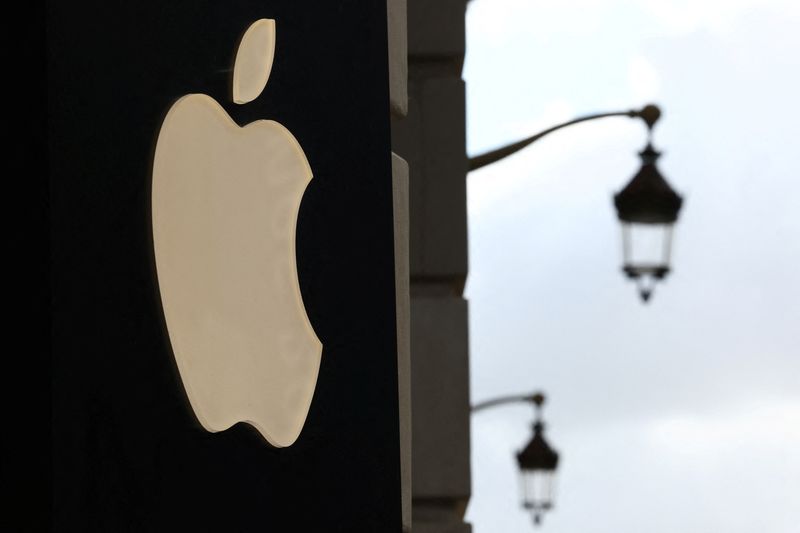BEIJING (Reuters) – China’s titanium producers said on Wednesday they expect stronger demand for the lightweight metal after the launch of a new model of Apple’s iPhone with a titanium shell.
Production of the new Apple iPhone 15 Pro, unveiled on Tuesday, will lift demand for titanium by between 3% and 4% this year, or by as much as 10,000 tons, said Zhao Wei, information director at the Titanium Zirconium Hafnium branch of the China Nonferrous Metals Industry Association (CNIA).
China accounts for more than 60% of the 240,000 metric tons of titanium and titanium alloys produced globally each year, according to the CNIA.
Apple’s use of titanium, rather than a stainless steel shell, could trigger additional demand too, with other companies likely to follow its lead, Zhao and other market participants said.
“Following Apple’s lead, there will be other brands starting to use titanium alloys in their products, creating a bright spot for demand growth of the metal,” said Zhao.
China is also the biggest producer of iPhones, with global shipments made by Foxconn from a huge factory in central China.
About 40% of titanium is currently used in the chemicals sector and more than 30% in aerospace. The electronics sector accounts for less than 10% of demand, estimated Zhao, but has strong potential for growth.
Titanium has already been used in small volumes in Apple watches, but a contract to supply production of the new iPhone model is significantly larger than before, said a supplier who declined to be identified citing confidentiality.
A consumer product “monster” such as the iPhone would help bring wider adoption of titanium in new industries, replacing materials like stainless steel, he added.
The titanium shell on the new iPhone is made with an alloy known as Grade 5 Titanium that also contains small amounts of aluminium and vanadium, according to three Chinese titanium producers.
The alloy is known for excellent corrosion resistance, light weight and strength but cannot be produced by all suppliers, said Zhao.
“There’s a technical barrier to produce titanium alloys and international enterprises such as Apple require high standards. So we won’t see the market crowded with newcomers,” he said.
(Reporting by Ningwei Qin, Amy Lv, Siyi Liu and Dominique Patton; Editing by Sharon Singleton)
